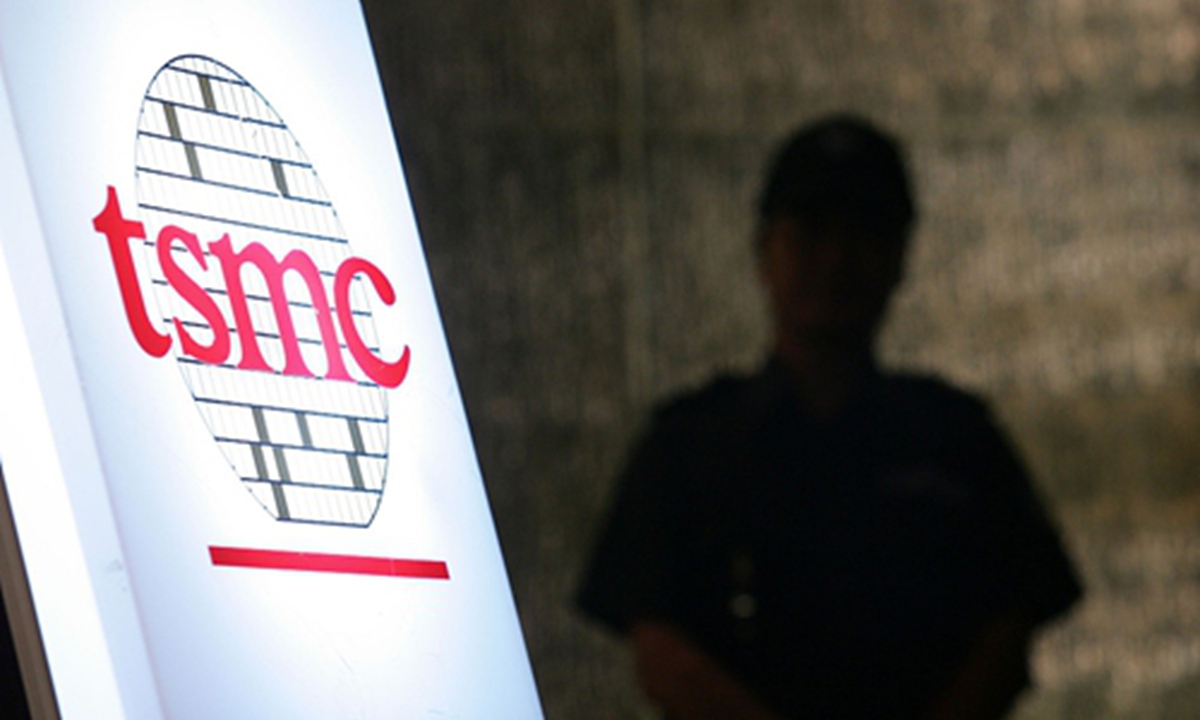
TSMC File photo
A new Taiwan Semiconductor Manufacturing Co (TSMC) plant in the US was set to have a tool-in ceremony on Tuesday US time, marking the installation of the first equipment at the facility as the latest example of Washington’s efforts to lure chip companies to manufacture in the US with subsidies and political maneuvers.
However, the move won’t satisfy Washington’s ambitions to strengthen its chip capacity due to high costs and a shortage of skilled personnel, experts said, warning that US efforts to win investment through non-market means not only disrupt global chip supply chains but also hurts Taiwan region’s economy.
US President Joe Biden plans to travel to TSMC's facility in the US state of Arizona on Tuesday, the White House said. Biden’s visit comes as the chipmaker is set to more than triple its planned investment in the plant, according to Reuters.
TSMC originally planned to produce 20,000 wafers a month in Arizona, but it now aims to double that capacity and make even more advanced chips using 3-nanometer technology, the Nikkei newspaper in Japan reported, citing people familiar with the matter.
The US has been pushing to tighten control over the Taiwan semiconductor industry by pressuring leading chipmakers to bring their advanced manufacturing capacity to the US.
In August, Biden signed legislation funding $52.7 billion for semiconductor manufacturing and research. The "Chips and Science" act also includes an investment tax credit for chip plants estimated to be worth $24 billion, according to Reuters.
With the move, the US aims to use the world’s top chipmakers to cut the development of the Chinese mainland’s chip industry chain and transfer the production capacity to the US, experts said.
However, the intention of the US to force enterprises to build factories in the US with subsidies goes against market rules and is difficult to achieve, Xiang Ligang, a veteran chip industry observer, told the Global Times on Tuesday.
Xiang noted that companies may lose their competitiveness in the market due to the shortage of engineers, construction and operating costs that are double those in the Taiwan island, and a lack of infrastructure guarantees such as electricity and water, on which the semiconductor sector heavily relies.
“A range of construction costs and project uncertainty in Phoenix makes building the same advanced logic wafer fab in Taiwan considerably less capital-intensive,” TSMC said in a letter to the US Commerce Departdment in November, the Wall Street Journal reported.
“The real barrier” to setting up manufacturing in the US “is comparative cost to build and operate,” it said.
TSMC's Arizona factory has sparked concerns in the island of Taiwan, where chip manufacturing is the backbone of the regional economy, about a talent outflow and a hollowing-out of the local chip industry.
“TSMC will lose competitiveness after its advanced manufacturing processes and talented engineers are taken away to the US,” Xiang said.
The same applies to the US-led "Chip 4" semiconductor alliance, which is aimed at containing China's development in the industry.
The US’ selfishness behind TSMC’s manufacturing outflow will only further disrupt the international supply chain, deepen existing conflicts of interest among its allies and undermine its influence in the Asia-Pacific region, experts said.
Global Times




